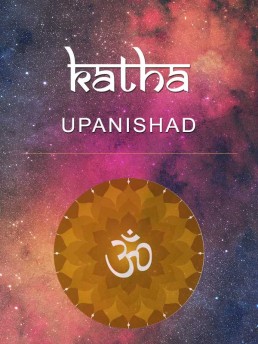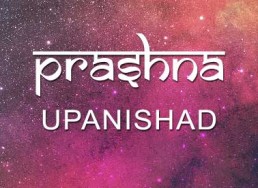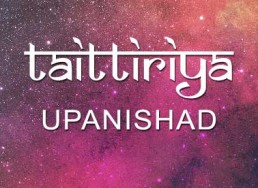Kathopanishad All Verses
Kathopanishad Introduction
The Katha Upanishad (Kathopanishad) is the legendary story of a little boy, Nachiketa – the son of Sage Vajasravasa, who meets Yama (the deity of death). Their conversation evolves to a discussion of the nature of man, knowledge, Atman (Soul, Self) and Moksha (liberation). This Upanishad is one of the most popular Upanishads for its simplicity and clarity in making the subject matter regarding the Highest truth easily comprehensible. It consists of two chapters (adhyāyas), each divided into three sections (vallis) that contain a total of 119 mantras. Many mantras of Kathopanishad have been repeated in the Bhagavad-Gitä in verbatim/or adapted.
Kathopanishad Links on our site
Kathopanishad Home Page
Kathopanishad Verse by Verse
Invocation
ॐ
॥ अथ कठोपनिषद् ॥
ॐ सह नाववतु । सह नौ भुनक्तु । सहवीर्यं करवावहै ।
तेजस्वि नावधीतमस्तु । मा विद्विषावहै ॥
ॐ शान्तिः शान्तिः शान्तिः ॥
.. atha kaṭhopaniṣad ..
oṃ saha nāvavatu . saha nau bhunaktu . sahavīryaṃ karavāvahai .
tejasvi nāvadhītamastu . mā vidviṣāvahai ..
oṃ śāntiḥ śāntiḥ śāntiḥ ..
Om. May Brahman protect us both! May Brahman bestow upon us both the fruit of Knowledge! May we both obtain the energy to acquire Knowledge! May what we both study reveal the Truth! May we cherish no ill feeling toward each other!Om. Peace! Peace! Peace!
ॐ उशन् ह वै वाजश्रवसः सर्ववेदसं ददौ ।
तस्य ह नचिकेता नाम पुत्र आस ॥ १॥
tasya ha naciketā nāma putra āsa .. 1..
नीयमानासु श्रद्धाविवेश सोऽमन्यत ॥ २॥
nīyamānāsu śraddhāviveśa so’manyata .. 2..
अनन्दा नाम ते लोकास्तान् स गच्छति ता ददत् ॥ ३॥
anandā nāma te lokāstān sa gacchati tā dadat .. 3..
द्वितीयं तृतीयं तँ होवाच मृत्यवे त्वा ददामीति ॥ ४॥
dvitīyaṃ tṛtīyaṃ tam̐ hovāca mṛtyave tvā dadāmīti .. 4..
किँ स्विद्यमस्य कर्तव्यं यन्मयाऽद्य करिष्यति ॥ ५॥
kim̐ svidyamasya kartavyaṃ yanmayā’dya kariṣyati .. 5..
सस्यमिव मर्त्यः पच्यते सस्यमिवाजायते पुनः ॥ ६॥
sasyamiva martyaḥ pacyate sasyamivājāyate punaḥ .. 6..
तस्यैताँ शान्तिं कुर्वन्ति हर वैवस्वतोदकम् ॥ ७॥
tasyaitām̐ śāntiṃ kurvanti hara vaivasvatodakam .. 7..
चेष्टापूर्ते पुत्रपशूँश्च सर्वान् ।
एतद्वृङ्क्ते पुरुषस्याल्पमेधसो
यस्यानश्नन्वसति ब्राह्मणो गृहे ॥ ८॥
ceṣṭāpūrte putrapaśūm̐śca sarvān .
etadvṛṅkte puruṣasyālpamedhaso
yasyānaśnanvasati brāhmaṇo gṛhe .. 8..
ऽनश्नन् ब्रह्मन्नतिथिर्नमस्यः ।
नमस्तेऽस्तु ब्रह्मन् स्वस्ति मेऽस्तु
तस्मात्प्रति त्रीन्वरान्वृणीष्व ॥ ९॥
‘naśnan brahmannatithirnamasyaḥ .
namaste’stu brahman svasti me’stu
tasmātprati trīnvarānvṛṇīṣva .. 9..
वीतमन्युर्गौतमो माऽभि मृत्यो ।
त्वत्प्रसृष्टं माऽभिवदेत्प्रतीत
एतत् त्रयाणां प्रथमं वरं वृणे ॥ १०॥
vītamanyurgautamo mā’bhi mṛtyo .
tvatprasṛṣṭaṃ mā’bhivadetpratīta
etat trayāṇāṃ prathamaṃ varaṃ vṛṇe .. 10..
औद्दालकिरारुणिर्मत्प्रसृष्टः ।
सुखँ रात्रीः शयिता वीतमन्युः
त्वां ददृशिवान्मृत्युमुखात् प्रमुक्तम् ॥ ११॥
auddālakirāruṇirmatprasṛṣṭaḥ .
sukham̐ rātrīḥ śayitā vītamanyuḥ
tvāṃ dadṛśivānmṛtyumukhāt pramuktam .. 11..
न तत्र त्वं न जरया बिभेति ।
उभे तीर्त्वाऽशनायापिपासे
शोकातिगो मोदते स्वर्गलोके ॥ १२॥
na tatra tvaṃ na jarayā bibheti .
ubhe tīrtvā’śanāyāpipāse
śokātigo modate svargaloke .. 12..
प्रब्रूहि त्वँ श्रद्दधानाय मह्यम् ।
स्वर्गलोका अमृतत्वं भजन्त
एतद् द्वितीयेन वृणे वरेण ॥ १३॥
prabrūhi tvam̐ śraddadhānāya mahyam .
svargalokā amṛtatvaṃ bhajanta
etad dvitīyena vṛṇe vareṇa .. 13..
स्वर्ग्यमग्निं नचिकेतः प्रजानन् ।
अनन्तलोकाप्तिमथो प्रतिष्ठां
विद्धि त्वमेतं निहितं गुहायाम् ॥ १४॥
svargyamagniṃ naciketaḥ prajānan .
anantalokāptimatho pratiṣṭhāṃ
viddhi tvametaṃ nihitaṃ guhāyām .. 14..
या इष्टका यावतीर्वा यथा वा ।
स चापि तत्प्रत्यवदद्यथोक्तं
अथास्य मृत्युः पुनरेवाह तुष्टः ॥ १५॥
yā iṣṭakā yāvatīrvā yathā vā .
sa cāpi tatpratyavadadyathoktaṃ
athāsya mṛtyuḥ punarevāha tuṣṭaḥ .. 15..
वरं तवेहाद्य ददामि भूयः ।
तवैव नाम्ना भविताऽयमग्निः
सृङ्कां चेमामनेकरूपां गृहाण ॥ १६॥
varaṃ tavehādya dadāmi bhūyaḥ .
tavaiva nāmnā bhavitā’yamagniḥ
sṛṅkāṃ cemāmanekarūpāṃ gṛhāṇa .. 16..
त्रिकर्मकृत्तरति जन्ममृत्यू ।
ब्रह्मजज्ञं देवमीड्यं विदित्वा
निचाय्येमाँ शान्तिमत्यन्तमेति ॥ १७॥
trikarmakṛttarati janmamṛtyū .
brahmajajñaṃ devamīḍyaṃ viditvā
nicāyyemām̐ śāntimatyantameti .. 17..
य एवं विद्वाँश्चिनुते नाचिकेतम् ।
स मृत्युपाशान् पुरतः प्रणोद्य
शोकातिगो मोदते स्वर्गलोके ॥ १८॥
ya evaṃ vidvām̐ścinute nāciketam .
sa mṛtyupāśān purataḥ praṇodya
śokātigo modate svargaloke .. 18..
यमवृणीथा द्वितीयेन वरेण ।
एतमग्निं तवैव प्रवक्ष्यन्ति जनासः
तृतीयं वरं नचिकेतो वृणीष्व ॥ १९॥
yamavṛṇīthā dvitīyena vareṇa .
etamagniṃ tavaiva pravakṣyanti janāsaḥ
tṛtīyaṃ varaṃ naciketo vṛṇīṣva .. 19..
ऽस्तीत्येके नायमस्तीति चैके ।
एतद्विद्यामनुशिष्टस्त्वयाऽहं
वराणामेष वरस्तृतीयः ॥ २०॥
‘stītyeke nāyamastīti caike .
etadvidyāmanuśiṣṭastvayā’haṃ
varāṇāmeṣa varastṛtīyaḥ .. 20..
न हि सुविज्ञेयमणुरेष धर्मः ।
अन्यं वरं नचिकेतो वृणीष्व
मा मोपरोत्सीरति मा सृजैनम् ॥ २१॥
na hi suvijñeyamaṇureṣa dharmaḥ .
anyaṃ varaṃ naciketo vṛṇīṣva
mā moparotsīrati mā sṛjainam .. 21..
त्वं च मृत्यो यन्न सुज्ञेयमात्थ ।
वक्ता चास्य त्वादृगन्यो न लभ्यो
नान्यो वरस्तुल्य एतस्य कश्चित् ॥ २२॥
tvaṃ ca mṛtyo yanna sujñeyamāttha .
vaktā cāsya tvādṛganyo na labhyo
nānyo varastulya etasya kaścit .. 22..
बहून्पशून् हस्तिहिरण्यमश्वान् ।
भूमेर्महदायतनं वृणीष्व
स्वयं च जीव शरदो यावदिच्छसि ॥ २३॥
bahūnpaśūn hastihiraṇyamaśvān .
bhūmermahadāyatanaṃ vṛṇīṣva
svayaṃ ca jīva śarado yāvadicchasi .. 23..
वृणीष्व वित्तं चिरजीविकां च ।
महाभूमौ नचिकेतस्त्वमेधि
कामानां त्वा कामभाजं करोमि ॥ २४॥
vṛṇīṣva vittaṃ cirajīvikāṃ ca .
mahābhūmau naciketastvamedhi
kāmānāṃ tvā kāmabhājaṃ karomi .. 24..
सर्वान् कामाँश्छन्दतः प्रार्थयस्व ।
इमा रामाः सरथाः सतूर्या
न हीदृशा लम्भनीया मनुष्यैः ।
आभिर्मत्प्रत्ताभिः परिचारयस्व
नचिकेतो मरणं माऽनुप्राक्षीः ॥ २५॥
sarvān kāmām̐śchandataḥ prārthayasva .
imā rāmāḥ sarathāḥ satūryā
na hīdṛśā lambhanīyā manuṣyaiḥ .
ābhirmatprattābhiḥ paricārayasva
naciketo maraṇaṃ mā’nuprākṣīḥ .. 25..
सर्वेंद्रियाणां जरयंति तेजः ।
अपि सर्वं जीवितमल्पमेव
तवैव वाहास्तव नृत्यगीते ॥ २६॥
sarveṃdriyāṇāṃ jarayaṃti tejaḥ .
api sarvaṃ jīvitamalpameva
tavaiva vāhāstava nṛtyagīte .. 26..
लप्स्यामहे वित्तमद्राक्ष्म चेत्त्वा ।
जीविष्यामो यावदीशिष्यसि त्वं
वरस्तु मे वरणीयः स एव ॥ २७॥
lapsyāmahe vittamadrākṣma cettvā .
jīviṣyāmo yāvadīśiṣyasi tvaṃ
varastu me varaṇīyaḥ sa eva .. 27..
जीर्यन्मर्त्यः क्वधःस्थः प्रजानन् ।
अभिध्यायन् वर्णरतिप्रमोदान्
अतिदीर्घे जीविते को रमेत ॥ २८॥
jīryanmartyaḥ kvadhaḥsthaḥ prajānan .
abhidhyāyan varṇaratipramodān
atidīrghe jīvite ko rameta .. 28..
यत्साम्पराये महति ब्रूहि नस्तत् ।
योऽयं वरो गूढमनुप्रविष्टो
नान्यं तस्मान्नचिकेता वृणीते ॥ २९॥
॥ इति काठकोपनिषदि प्रथमाध्याये प्रथमा वल्ली ॥
yatsāmparāye mahati brūhi nastat .
yo’yaṃ varo gūḍhamanupraviṣṭo
nānyaṃ tasmānnaciketā vṛṇīte .. 29..
.. iti kāṭhakopaniṣadi prathamādhyāye prathamā vallī ..
अन्यच्छ्रेयोऽन्यदुतैव प्रेय-
स्ते उभे नानार्थे पुरुषँ सिनीतः ।
तयोः श्रेय आददानस्य साधु
भवति हीयतेऽर्थाद्य उ प्रेयो वृणीते ॥ १॥
ste ubhe nānārthe puruṣam̐ sinītaḥ .
tayoḥ śreya ādadānasya sādhu
bhavati hīyate’rthādya u preyo vṛṇīte .. 1..
तौ सम्परीत्य विविनक्ति धीरः ।
श्रेयो हि धीरोऽभि प्रेयसो वृणीते
प्रेयो मन्दो योगक्षेमाद्वृणीते ॥ २॥
tau samparītya vivinakti dhīraḥ .
śreyo hi dhīro’bhi preyaso vṛṇīte
preyo mando yogakṣemādvṛṇīte .. 2..
अभिध्यायन्नचिकेतोऽत्यस्राक्षीः ।
नैतां सृङ्कां वित्तमयीमवाप्तो
यस्यां मज्जन्ति बहवो मनुष्याः ॥ ३॥
abhidhyāyannaciketo’tyasrākṣīḥ .
naitāṃ sṛṅkāṃ vittamayīmavāpto
yasyāṃ majjanti bahavo manuṣyāḥ .. 3..
अविद्या या च विद्येति ज्ञाता ।
विद्याभीप्सिनं नचिकेतसं मन्ये
न त्वा कामा बहवोऽलोलुपन्त ॥ ४॥
avidyā yā ca vidyeti jñātā .
vidyābhīpsinaṃ naciketasaṃ manye
na tvā kāmā bahavo’lolupanta .. 4..
स्वयं धीराः पण्डितंमन्यमानाः ।
दन्द्रम्यमाणाः परियन्ति मूढा
अन्धेनैव नीयमाना यथान्धाः ॥ ५॥
svayaṃ dhīrāḥ paṇḍitaṃmanyamānāḥ .
dandramyamāṇāḥ pariyanti mūḍhā
andhenaiva nīyamānā yathāndhāḥ .. 5..
प्रमाद्यन्तं वित्तमोहेन मूढम् ।
अयं लोको नास्ति पर इति मानी
पुनः पुनर्वशमापद्यते मे ॥ ६॥
pramādyantaṃ vittamohena mūḍham .
ayaṃ loko nāsti para iti mānī
punaḥ punarvaśamāpadyate me .. 6..
शृण्वन्तोऽपि बहवो यं न विद्युः ।
आश्चर्यो वक्ता कुशलोऽस्य लब्धा
आश्चर्यो ज्ञाता कुशलानुशिष्टः ॥ ७॥
śṛṇvanto’pi bahavo yaṃ na vidyuḥ .
āścaryo vaktā kuśalo’sya labdhā
āścaryo jñātā kuśalānuśiṣṭaḥ .. 7..
सुविज्ञेयो बहुधा चिन्त्यमानः ।
अनन्यप्रोक्ते गतिरत्र नास्ति
अणीयान् ह्यतर्क्यमणुप्रमाणात् ॥ ८॥
suvijñeyo bahudhā cintyamānaḥ .
ananyaprokte gatiratra nāsti
aṇīyān hyatarkyamaṇupramāṇāt .. 8..
प्रोक्तान्येनैव सुज्ञानाय प्रेष्ठ ।
यां त्वमापः सत्यधृतिर्बतासि
त्वादृङ्नो भूयान्नचिकेतः प्रष्टा ॥ ९॥
proktānyenaiva sujñānāya preṣṭha .
yāṃ tvamāpaḥ satyadhṛtirbatāsi
tvādṛṅno bhūyānnaciketaḥ praṣṭā .. 9..
न ह्यध्रुवैः प्राप्यते हि ध्रुवं तत् ।
ततो मया नाचिकेतश्चितोऽग्निः
अनित्यैर्द्रव्यैः प्राप्तवानस्मि नित्यम् ॥ १०॥
na hyadhruvaiḥ prāpyate hi dhruvaṃ tat .
tato mayā nāciketaścito’gniḥ
anityairdravyaiḥ prāptavānasmi nityam .. 10..
क्रतोरानन्त्यमभयस्य पारम् ।
स्तोममहदुरुगायं प्रतिष्ठां दृष्ट्वा
धृत्या धीरो नचिकेतोऽत्यस्राक्षीः ॥ ११॥
kratorānantyamabhayasya pāram .
stomamahadurugāyaṃ pratiṣṭhāṃ dṛṣṭvā
dhṛtyā dhīro naciketo’tyasrākṣīḥ .. 11..
गुहाहितं गह्वरेष्ठं पुराणम् ।
अध्यात्मयोगाधिगमेन देवं
मत्वा धीरो हर्षशोकौ जहाति ॥ १२॥
guhāhitaṃ gahvareṣṭhaṃ purāṇam .
adhyātmayogādhigamena devaṃ
matvā dhīro harṣaśokau jahāti .. 12..
प्रवृह्य धर्म्यमणुमेतमाप्य ।
स मोदते मोदनीयँ हि लब्ध्वा
विवृतँ सद्म नचिकेतसं मन्ये ॥ १३॥
pravṛhya dharmyamaṇumetamāpya .
sa modate modanīyam̐ hi labdhvā
vivṛtam̐ sadma naciketasaṃ manye .. 13..
दन्यत्रास्मात्कृताकृतात् ।
अन्यत्र भूताच्च भव्याच्च
यत्तत्पश्यसि तद्वद ॥ १४॥
danyatrāsmātkṛtākṛtāt .
anyatra bhūtācca bhavyācca
yattatpaśyasi tadvada .. 14..
तपाꣳसि सर्वाणि च यद्वदन्ति ।
यदिच्छन्तो ब्रह्मचर्यं चरन्ति
तत्ते पदꣳ संग्रहेण ब्रवीम्योमित्येतत् ॥ १५॥
tapāgͫsi sarvāṇi ca yadvadanti .
yadicchanto brahmacaryaṃ caranti
tatte padagͫ saṃgraheṇa bravīmyomityetat .. 15..
एतद्ध्येवाक्षरं ज्ञात्वा यो यदिच्छति तस्य तत् ॥ १६॥
etaddhyevākṣaraṃ jñātvā yo yadicchati tasya tat .. 16..
एतदालम्बनं ज्ञात्वा ब्रह्मलोके महीयते ॥ १७॥
etadālambanaṃ jñātvā brahmaloke mahīyate .. 17..
नायं कुतश्चिन्न बभूव कश्चित् ।
अजो नित्यः शाश्वतोऽयं पुराणो
न हन्यते हन्यमाने शरीरे ॥ १८॥
nāyaṃ kutaścinna babhūva kaścit .
ajo nityaḥ śāśvato’yaṃ purāṇo
na hanyate hanyamāne śarīre .. 18..
उभौ तौ न विजानीतो नायँ हन्ति न हन्यते ॥ १९॥
ubhau tau na vijānīto nāyam̐ hanti na hanyate .. 19..
नात्माऽस्य जन्तोर्निहितो गुहायाम् ।
तमक्रतुः पश्यति वीतशोको
धातुप्रसादान्महिमानमात्मनः ॥ २०॥
nātmā’sya jantornihito guhāyām .
tamakratuḥ paśyati vītaśoko
dhātuprasādānmahimānamātmanaḥ .. 20..
कस्तं मदामदं देवं मदन्यो ज्ञातुमर्हति ॥ २१॥
kastaṃ madāmadaṃ devaṃ madanyo jñātumarhati .. 21..
महान्तं विभुमात्मानं मत्वा धीरो न शोचति ॥ २२॥
mahāntaṃ vibhumātmānaṃ matvā dhīro na śocati .. 22..
न मेधया न बहुना श्रुतेन ।
यमेवैष वृणुते तेन लभ्यः
तस्यैष आत्मा विवृणुते तनूꣳ स्वाम् ॥ २३॥
na medhayā na bahunā śrutena .
yamevaiṣa vṛṇute tena labhyaḥ
tasyaiṣa ātmā vivṛṇute tanūgͫ svām .. 23..
नाशान्तमानसो वाऽपि प्रज्ञानेनैनमाप्नुयात् ॥ २४॥
nāśāntamānaso vā’pi prajñānenainamāpnuyāt .. 24..
मृत्युर्यस्योपसेचनं क इत्था वेद यत्र सः ॥ २५॥
इति काठकोपनिषदि प्रथमाध्याये द्वितीया वल्ली ॥
mṛtyuryasyopasecanaṃ ka itthā veda yatra saḥ .. 25..
iti kāṭhakopaniṣadi prathamādhyāye dvitīyā vallī ..
ऋतं पिबन्तौ सुकृतस्य लोके
गुहां प्रविष्टौ परमे परार्धे ।
छायातपौ ब्रह्मविदो वदन्ति
पञ्चाग्नयो ये च त्रिणाचिकेताः ॥ १॥
guhāṃ praviṣṭau parame parārdhe .
chāyātapau brahmavido vadanti
pañcāgnayo ye ca triṇāciketāḥ .. 1..
अभयं तितीर्षतां पारं नाचिकेतँ शकेमहि ॥ २॥
abhayaṃ titīrṣatāṃ pāraṃ nāciketam̐ śakemahi .. 2..
बुद्धिं तु सारथिं विद्धि मनः प्रग्रहमेव च ॥ ३॥
buddhiṃ tu sārathiṃ viddhi manaḥ pragrahameva ca .. 3..
आत्मेन्द्रियमनोयुक्तं भोक्तेत्याहुर्मनीषिणः ॥ ४॥
ātmendriyamanoyuktaṃ bhoktetyāhurmanīṣiṇaḥ .. 4..
तस्येन्द्रियाण्यवश्यानि दुष्टाश्वा इव सारथेः ॥ ५॥
tasyendriyāṇyavaśyāni duṣṭāśvā iva sāratheḥ .. 5..
तस्येन्द्रियाणि वश्यानि सदश्वा इव सारथेः ॥ ६॥
tasyendriyāṇi vaśyāni sadaśvā iva sāratheḥ .. 6..
न स तत्पदमाप्नोति संसारं चाधिगच्छति ॥ ७॥
na sa tatpadamāpnoti saṃsāraṃ cādhigacchati .. 7..
स तु तत्पदमाप्नोति यस्माद्भूयो न जायते ॥ ८॥
sa tu tatpadamāpnoti yasmādbhūyo na jāyate .. 8..
सोऽध्वनः पारमाप्नोति तद्विष्णोः परमं पदम् ॥ ९॥
so’dhvanaḥ pāramāpnoti tadviṣṇoḥ paramaṃ padam .. 9..
मनसस्तु परा बुद्धिर्बुद्धेरात्मा महान्परः ॥ १०॥
manasastu parā buddhirbuddherātmā mahānparaḥ .. 10..
पुरुषान्न परं किंचित्सा काष्ठा सा परा गतिः ॥ ११॥
puruṣānna paraṃ kiṃcitsā kāṣṭhā sā parā gatiḥ .. 11..
दृश्यते त्वग्र्यया बुद्ध्या सूक्ष्मया सूक्ष्मदर्शिभिः ॥ १२॥
dṛśyate tvagryayā buddhyā sūkṣmayā sūkṣmadarśibhiḥ .. 12..
ज्ञानमात्मनि महति नियच्छेत्तद्यच्छेच्छान्त आत्मनि ॥ १३॥
jñānamātmani mahati niyacchettadyacchecchānta ātmani .. 13..
प्राप्य वरान्निबोधत ।
क्षुरस्य धारा निशिता दुरत्यया
दुर्गं पथस्तत्कवयो वदन्ति ॥ १४॥
prāpya varānnibodhata .
kṣurasya dhārā niśitā duratyayā
durgaṃ pathastatkavayo vadanti .. 14..
तथाऽरसं नित्यमगन्धवच्च यत् ।
अनाद्यनन्तं महतः परं ध्रुवं
निचाय्य तन्मृत्युमुखात् प्रमुच्यते ॥ १५॥
tathā’rasaṃ nityamagandhavacca yat .
anādyanantaṃ mahataḥ paraṃ dhruvaṃ
nicāyya tanmṛtyumukhāt pramucyate .. 15..
उक्त्वा श्रुत्वा च मेधावी ब्रह्मलोके महीयते ॥ १६॥
uktvā śrutvā ca medhāvī brahmaloke mahīyate .. 16..
प्रयतः श्राद्धकाले वा तदानन्त्याय कल्पते ।
तदानन्त्याय कल्पत इति ॥ १७॥
इति काठकोपनिषदि प्रथमाध्याये तृतीया वल्ली ॥
prayataḥ śrāddhakāle vā tadānantyāya kalpate .
tadānantyāya kalpata iti .. 17..
iti kāṭhakopaniṣadi prathamādhyāye tṛtīyā vallī ..
पराञ्चि खानि व्यतृणत् स्वयम्भू-
स्तस्मात्पराङ्पश्यति नान्तरात्मन् ।
कश्चिद्धीरः प्रत्यगात्मानमैक्ष-
दावृत्तचक्षुरमृतत्वमिच्छन् ॥ १॥
stasmātparāṅpaśyati nāntarātman .
kaściddhīraḥ pratyagātmānamaikṣa-
dāvṛttacakṣuramṛtatvamicchan .. 1..
स्ते मृत्योर्यन्ति विततस्य पाशम् ।
अथ धीरा अमृतत्वं विदित्वा
ध्रुवमध्रुवेष्विह न प्रार्थयन्ते ॥ २॥
ste mṛtyoryanti vitatasya pāśam .
atha dhīrā amṛtatvaṃ viditvā
dhruvamadhruveṣviha na prārthayante .. 2..
एतेनैव विजानाति किमत्र परिशिष्यते । एतद्वै तत् ॥ ३॥
etenaiva vijānāti kimatra pariśiṣyate . etadvai tat .. 3..
महान्तं विभुमात्मानं मत्वा धीरो न शोचति ॥ ४॥
mahāntaṃ vibhumātmānaṃ matvā dhīro na śocati .. 4..
ईशानं भूतभव्यस्य न ततो विजुगुप्सते । एतद्वै तत् ॥ ५॥
īśānaṃ bhūtabhavyasya na tato vijugupsate . etadvai tat .. 5..
गुहां प्रविश्य तिष्ठन्तं यो भूतेभिर्व्यपश्यत । एतद्वै तत् ॥ ६॥
guhāṃ praviśya tiṣṭhantaṃ yo bhūtebhirvyapaśyata . etadvai tat .. 6..
गुहां प्रविश्य तिष्ठन्तीं या भूतेभिर्व्यजायत । एतद्वै तत् ॥ ७॥
guhāṃ praviśya tiṣṭhantīṃ yā bhūtebhirvyajāyata . etadvai tat .. 7..
दिवे दिवे ईड्यो जागृवद्भिर्हविष्मद्भिर्मनुष्येभिरग्निः । एतद्वै तत् ॥ ८॥
dive dive īḍyo jāgṛvadbhirhaviṣmadbhirmanuṣyebhiragniḥ . etadvai tat .. 8..
तं देवाः सर्वेऽर्पितास्तदु नात्येति कश्चन । एतद्वै तत् ॥ ९॥
taṃ devāḥ sarve’rpitāstadu nātyeti kaścana . etadvai tat .. 9..
मृत्योः स मृत्युमाप्नोति य इह नानेव पश्यति ॥ १०॥
mṛtyoḥ sa mṛtyumāpnoti ya iha nāneva paśyati .. 10..
मृत्योः स मृत्युं गच्छति य इह नानेव पश्यति ॥ ११॥
mṛtyoḥ sa mṛtyuṃ gacchati ya iha nāneva paśyati .. 11..
ईशानं भूतभव्यस्य न ततो विजुगुप्सते । एतद्वै तत् ॥ १२॥
īśānaṃ bhūtabhavyasya na tato vijugupsate . etadvai tat .. 12..
ईशानो भूतभव्यस्य स एवाद्य स उ श्वः । एतद्वै तत् ॥ १३॥
īśāno bhūtabhavyasya sa evādya sa u śvaḥ . etadvai tat .. 13..
एवं धर्मान् पृथक् पश्यंस्तानेवानुविधावति ॥ १४॥
evaṃ dharmān pṛthak paśyaṃstānevānuvidhāvati .. 14..
एवं मुनेर्विजानत आत्मा भवति गौतम ॥ १५॥
इति काठकोपनिषदि द्वितीयाध्याये प्रथमा वल्ली ॥
evaṃ munervijānata ātmā bhavati gautama .. 15..
iti kāṭhakopaniṣadi dvitīyādhyāye prathamā vallī ..
पुरमेकादशद्वारमजस्यावक्रचेतसः ।
अनुष्ठाय न शोचति विमुक्तश्च विमुच्यते । एतद्वै तत् ॥ १॥
anuṣṭhāya na śocati vimuktaśca vimucyate . etadvai tat .. 1..
होता वेदिषदतिथिर्दुरोणसत् ।
नृषद्वरसदृतसद्व्योमसद्
अब्जा गोजा ऋतजा अद्रिजा ऋतं बृहत् ॥ २॥
hotā vediṣadatithirduroṇasat .
nṛṣadvarasadṛtasadvyomasad
abjā gojā ṛtajā adrijā ṛtaṃ bṛhat .. 2..
मध्ये वामनमासीनं विश्वे देवा उपासते ॥ ३॥
madhye vāmanamāsīnaṃ viśve devā upāsate .. 3..
देहाद्विमुच्यमानस्य किमत्र परिशिष्यते । एतद्वै तत् ॥ ४॥
dehādvimucyamānasya kimatra pariśiṣyate . etadvai tat .. 4..
इतरेण तु जीवन्ति यस्मिन्नेतावुपाश्रितौ ॥ ५॥
itareṇa tu jīvanti yasminnetāvupāśritau .. 5..
यथा च मरणं प्राप्य आत्मा भवति गौतम ॥ ६॥
yathā ca maraṇaṃ prāpya ātmā bhavati gautama .. 6..
स्थाणुमन्येऽनुसंयन्ति यथाकर्म यथाश्रुतम् ॥ ७॥
sthāṇumanye’nusaṃyanti yathākarma yathāśrutam .. 7..
तदेव शुक्रं तद्ब्रह्म तदेवामृतमुच्यते ।
तस्मिँल्लोकाः श्रिताः सर्वे तदु नात्येति कश्चन । एतद्वै तत् ॥ ८॥
tadeva śukraṃ tadbrahma tadevāmṛtamucyate .
tasmim̐llokāḥ śritāḥ sarve tadu nātyeti kaścana . etadvai tat .. 8..
रूपं रूपं प्रतिरूपो बभूव ।
एकस्तथा सर्वभूतान्तरात्मा
रूपं रूपं प्रतिरूपो बहिश्च ॥ ९॥
rūpaṃ rūpaṃ pratirūpo babhūva .
ekastathā sarvabhūtāntarātmā
rūpaṃ rūpaṃ pratirūpo bahiśca .. 9..
रूपं रूपं प्रतिरूपो बभूव ।
एकस्तथा सर्वभूतान्तरात्मा
रूपं रूपं प्रतिरूपो बहिश्च ॥ १०॥
rūpaṃ rūpaṃ pratirūpo babhūva .
ekastathā sarvabhūtāntarātmā
rūpaṃ rūpaṃ pratirūpo bahiśca .. 10..
न लिप्यते चाक्षुषैर्बाह्यदोषैः ।
एकस्तथा सर्वभूतान्तरात्मा
न लिप्यते लोकदुःखेन बाह्यः ॥ ११॥
na lipyate cākṣuṣairbāhyadoṣaiḥ .
ekastathā sarvabhūtāntarātmā
na lipyate lokaduḥkhena bāhyaḥ .. 11..
एकं रूपं बहुधा यः करोति ।
तमात्मस्थं येऽनुपश्यन्ति धीराः
तेषां सुखं शाश्वतं नेतरेषाम् ॥ १२॥
ekaṃ rūpaṃ bahudhā yaḥ karoti .
tamātmasthaṃ ye’nupaśyanti dhīrāḥ
teṣāṃ sukhaṃ śāśvataṃ netareṣām .. 12..
एको बहूनां यो विदधाति कामान् ।
तमात्मस्थं येऽनुपश्यन्ति धीराः
तेषां शान्तिः शाश्वती नेतरेषाम् ॥ १३॥
eko bahūnāṃ yo vidadhāti kāmān .
tamātmasthaṃ ye’nupaśyanti dhīrāḥ
teṣāṃ śāntiḥ śāśvatī netareṣām .. 13..
कथं नु तद्विजानीयां किमु भाति विभाति वा ॥ १४॥
kathaṃ nu tadvijānīyāṃ kimu bhāti vibhāti vā .. 14..
नेमा विद्युतो भान्ति कुतोऽयमग्निः ।
तमेव भान्तमनुभाति सर्वं
तस्य भासा सर्वमिदं विभाति ॥ १५॥
इति काठकोपनिषदि द्वितीयाध्याये द्वितीया वल्ली ॥
nemā vidyuto bhānti kuto’yamagniḥ .
tameva bhāntamanubhāti sarvaṃ
tasya bhāsā sarvamidaṃ vibhāti .. 15..
iti kāṭhakopaniṣadi dvitīyādhyāye dvitīyā vallī ..
ऊर्ध्वमूलोऽवाक्शाख एषोऽश्वत्थः सनातनः ।
तदेव शुक्रं तद्ब्रह्म तदेवामृतमुच्यते ।
तस्मिँल्लोकाः श्रिताः सर्वे तदु नात्येति कश्चन । एतद्वै तत् ॥ १॥
tadeva śukraṃ tadbrahma tadevāmṛtamucyate .
tasmim̐llokāḥ śritāḥ sarve tadu nātyeti kaścana . etadvai tat .. 1..
महद्भयं वज्रमुद्यतं य एतद्विदुरमृतास्ते भवन्ति ॥ २॥
mahadbhayaṃ vajramudyataṃ ya etadviduramṛtāste bhavanti .. 2..
भयादिन्द्रश्च वायुश्च मृत्युर्धावति पञ्चमः ॥ ३॥
bhayādindraśca vāyuśca mṛtyurdhāvati pañcamaḥ .. 3..
ततः सर्गेषु लोकेषु शरीरत्वाय कल्पते ॥ ४॥
tataḥ sargeṣu lokeṣu śarīratvāya kalpate .. 4..
यथाऽप्सु परीव ददृशे तथा गन्धर्वलोके
छायातपयोरिव ब्रह्मलोके ॥ ५॥
yathā’psu parīva dadṛśe tathā gandharvaloke
chāyātapayoriva brahmaloke .. 5..
पृथगुत्पद्यमानानां मत्वा धीरो न शोचति ॥ ६॥
pṛthagutpadyamānānāṃ matvā dhīro na śocati .. 6..
सत्त्वादधि महानात्मा महतोऽव्यक्तमुत्तमम् ॥ ७॥
sattvādadhi mahānātmā mahato’vyaktamuttamam .. 7..
यं ज्ञात्वा मुच्यते जन्तुरमृतत्वं च गच्छति ॥ ८॥
yaṃ jñātvā mucyate janturamṛtatvaṃ ca gacchati .. 8..
न चक्षुषा पश्यति कश्चनैनम् ।
हृदा मनीषा मनसाऽभिक्लृप्तो
य एतद्विदुरमृतास्ते भवन्ति ॥ ९॥
na cakṣuṣā paśyati kaścanainam .
hṛdā manīṣā manasā’bhiklṛpto
ya etadviduramṛtāste bhavanti .. 9..
बुद्धिश्च न विचेष्टते तामाहुः परमां गतिम् ॥ १०॥
buddhiśca na viceṣṭate tāmāhuḥ paramāṃ gatim .. 10..
अप्रमत्तस्तदा भवति योगो हि प्रभवाप्ययौ ॥ ११॥
apramattastadā bhavati yogo hi prabhavāpyayau .. 11..
अस्तीति ब्रुवतोऽन्यत्र कथं तदुपलभ्यते ॥ १२॥
astīti bruvato’nyatra kathaṃ tadupalabhyate .. 12..
अस्तीत्येवोपलब्धस्य तत्त्वभावः प्रसीदति ॥ १३॥
astītyevopalabdhasya tattvabhāvaḥ prasīdati .. 13..
अथ मर्त्योऽमृतो भवत्यत्र ब्रह्म समश्नुते ॥ १४॥
atha martyo’mṛto bhavatyatra brahma samaśnute .. 14..
अथ मर्त्योऽमृतो भवत्येतावद्ध्यनुशासनम् ॥ १५॥
atha martyo’mṛto bhavatyetāvaddhyanuśāsanam .. 15..
स्तासां मूर्धानमभिनिःसृतैका ।
तयोर्ध्वमायन्नमृतत्वमेति
विष्वङ्ङन्या उत्क्रमणे भवन्ति ॥ १६॥
stāsāṃ mūrdhānamabhiniḥsṛtaikā .
tayordhvamāyannamṛtatvameti
viṣvaṅṅanyā utkramaṇe bhavanti .. 16..
सदा जनानां हृदये संनिविष्टः ।
तं स्वाच्छरीरात्प्रवृहेन्मुञ्जादिवेषीकां धैर्येण ।
तं विद्याच्छुक्रममृतं तं विद्याच्छुक्रममृतमिति ॥ १७॥
sadā janānāṃ hṛdaye saṃniviṣṭaḥ .
taṃ svāccharīrātpravṛhenmuñjādiveṣīkāṃ dhairyeṇa .
taṃ vidyācchukramamṛtaṃ taṃ vidyācchukramamṛtamiti .. 17..
विद्यामेतां योगविधिं च कृत्स्नम् ।
ब्रह्मप्राप्तो विरजोऽभूद्विमृत्यु-
रन्योऽप्येवं यो विदध्यात्ममेव ॥ १८॥
vidyāmetāṃ yogavidhiṃ ca kṛtsnam .
brahmaprāpto virajo’bhūdvimṛtyu-
ranyo’pyevaṃ yo vidadhyātmameva .. 18..
तेजस्विनावधीतमस्तु मा विद्विषावहै ॥ १९॥
ॐ शान्तिः शान्तिः शान्तिः ॥
इति काठकोपनिषदि द्वितीयाध्याये तृतीया वल्ली ॥
tejasvināvadhītamastu mā vidviṣāvahai .. 19..
oṃ śāntiḥ śāntiḥ śāntiḥ ..
iti kāṭhakopaniṣadi dvitīyādhyāye tṛtīyā vallī ..
Om. May Brahman protect us both! May Brahman bestow upon us both the fruit of Knowledge! May we both obtain the energy to acquire Knowledge! May what we both study reveal the Truth! May we cherish no ill feeling toward each other!Om. Peace! Peace! Peace!

Description
Introduction to Kathopanishad
By: Swami Sivananda (Divine Life Society)
Salutations to Lord Yama, son of Vivasvan (Surya)!
The Kathopanishad is divided into six Vallis. Valli literally means a creeper. A Valli, like a creeper, is attached to the Sakhas or Branches of the Veda. Valli is used in the same sense as Parvam, joint, shoot, branch, i.e., a division. This Upanishad is also divided into two Adhyayas (chapters) of three Vallis each.
This is one of the most beautiful Upanishads in which the eternal truths are given in the form of a narrative. The narrative is taken from Taittiriya Brahmana (3-11-8) with some variation. The same story is told in the Taittiriya Brahmana, only with this difference, that in the Brahmana, freedom from death and birth is obtained by a peculiar performance of a sacrifice, while in the Upanishad, it is obtained by knowledge only. The story is as follows:
Vajasravasa, wishing for reward, sacrificed all his wealth. He had a son, called Nachiketas. While he was still a boy, faith entered into him at the time when the cows, that were to be given by his father as presents to the priests, were brought in. He said: “Father, to whom wilt thou give me?” He said so a second and a third time. But father turned round and said to him: “To Death I give thee.”
Then a voice said to young Nachiketas as he stood up: “He (thy father) said, ‘Go away to the house of Death, I give thee to Death’. Go therefore to Death, when he is not at home, and dwell in his house for three nights without eating. If he should ask thee ‘Boy, how many nights hast thou been here?’, say, ‘Three’. When he asks thee, ‘What didst thou eat the first night?’, say, ‘Thy offspring’; ‘What didst thou eat the second night?’, say, ‘Thy cattle’; ‘What didst thou eat the third night?’, say, ‘Thy good works’.”
He went to Death, while he was away from home, and he dwelt in his house for three nights without eating. When Death returned, the following took place: ‘Boy, how many nights hast thou been here?’ He answered, ‘Three’. ‘What didst thou eat the first night?’–‘Thy offspring’. ‘What didst thou eat the second night?’–‘Thy cattle’. ‘What didst thou eat the third night?’–‘Thy good works’.
Then Death said: ‘My respect to thee, O venerable sir, choose a boon’. ‘May I return living to my father?’–said Nachiketas. ‘Choose a second boon’, said Death. The boy replied: ‘Tell me how my good works may never perish’. Death then explained to him the Nachiketa fire (sacrifice), and hence his good works do not perish.
‘Choose a third boon’, said Death. Nachiketas said: ‘Tell me how to conquer death’.
Then Death explained to him this (chief) Nachiketa fire (sacrifice), and hence he conquered death.
This Upanishad has become very popular not only in India but everywhere in the world. It has been translated into many languages. It is a branch or recension of the Krishna Yajurveda. It forms part of the Katha-Sakha Brahmana of the Krishna Yajurveda. A few verses from this Upanishad occur in the Bhagavad Gita. It deserves the most careful consideration of all who are interested in the growth of religious and philosophical ideas. The sublime doctrines of Vedanta are presented in this Upanishad in a very attractive and charming manner.
The Katha Upanishad has always been considered as one of the best Upanishads. It has won the appreciation of many English, French and German writers also. They regard this Upanishad as the best book on philosophy and poetry of ancient Hindus. In elevation of thought, depth of expression, beauty of its imagery, no Upanishad is equal to the Kathopanishad.
The comparison of the body with a car or chariot, the soul with the Lord of the chariot, the intellect with the rider, the mind with the rein, the senses with horses, the five objects of the senses with the roads, is indeed very beautiful.
In this Upanishad, the way to attain Self-realisation is fully treated.
From such passages as, “This Atman is difficult to be known, It is very subtle, It cannot be obtained by arguing”, it is quite evident that revelation or direct intuition (Aparoksha-anubhuti) is the source of the knowledge of the Self.
From such passages as, “A wonderful teacher is required”, “Arise, awake, having reached the excellent teacher, learn” (III-14), “How can this Atman be realised otherwise than from those who say that It exists” (VI-12), it is quite clear that a realised Guru is necessary to lead the aspirants in the spiritual path.
From the 11th Mantra of the 6th Valli, you will understand that this Upanishad recognises the necessity of Yoga as well. This Mantra says: “The firm control of the senses they regard as Yoga. At that time one becomes vigilant, for Yoga is acquired and lost”.
Some writers complain that Kathopanishad is not the production of an original thinker or a seer, as there is little connection between the thoughts or verses in some places, there is no progress from one idea to another, there is neither arrangement nor connected sequence in some places, and that it is a mere compilation. This is a sad mistake. The seers of the Upanishads had direct revelations during communion or meditation. They expressed their experiences. Their inspired thoughts were scattered in different Sakhas or Branches of the Vedas. In days of yore, the thoughts of the seers, or their compositions, were handed over orally from teachers to their disciples. The original composers, the compilers, the repeaters, or lastly, the writers of the Upanishads might not have taken care to arrange them in an orderly manner. In some places, the text might have been corrupted by later compilers, copyists or printers.
This Upanishad was first introduced to the knowledge of European scholars by Raja Ram Mohan Roy. It has been translated into the German by Windischmann, by Poley. Dr. Weber has also written a commentary. Swami Ananda Giri has written a gloss on the commentary of Sri Sankara. Muir, Rignaud, Gough and many others have translated this Upanishad.
May the truths of the Upanishads be revealed unto you all! May you all be endowed with right understanding, discrimination and pure subtle intellect! May you all be freed from the knots of ignorance and ties of Samsara, and the trammels of birth and death! May you all be blessed with a Srotriya Brahma-Nishtha Guru to lead you on in the spiritual path! May you all shine as Jivanmuktas or Brahma-Jnanis in this very birth!
Other Upanishads
Ishavasya All Verses
Introduction to Isavasya Upanishad The Īśāvāsyopaniṣad—so called from its initial words—forms the concluding chapter of the Saṃhitā of the Suklayajurveda The name of
Ishavasya Upanishad
The Isha Upanishad is embedded as the final chapter of the Shukla Yajurveda and is one of the shortest Upanishads, with 18 verses. It is the very first Upanishad in the Muktika canon of 108 Upanishads.
Katha Upanishad
The Katha Upanishad is embedded in the last 8 sections of the Krishna Yajurveda. It has two chapters divided into three Vallis each. It is a Mukhya upanishad and listed as #3 in the Muktika canon of 108 Upanishads.
Kena Upanishad
The Kena Upanishad is embedded inside the last section of the Talavakara Brahmanam of the Samaveda. It is a Mukhya upanishad and listed as #2 in the Muktika canon of 108 Upanishads.
Kenopanishad-All-Verses
The Kena Upanishad or Kenopanishad (Kenopaniṣat) (also known as the Talavakara Upanishad) elucidates the concept of nirguna (qualityless) Brah
Mundaka Upanishad
The Mundaka Upanishad is embedded is embedded in the Atharva Veda. It is a Mukhya upanishad and listed as #5 in the Muktika canon of 108 Upanishads.
Prashna Upanishad
The Prashna Upanishad is embedded is embedded in the Atharva Veda. It is a Mukhya upanishad and listed as #5 in the Muktika canon of 108 Upanishads.
Prashnopanishad-All-Verses
The Prashnopanishad (Prashna Upanishad) is a key philosophical text within the Indian spiritual tradition, part of the larger body of literature known as the Upanishads.
Taittiriya Upanishad
The Taittiriya Upanishad is one of the primary Upanishads, as part of the Yajur Veda. It says that the highest goal is to know the Brahman, for that is Truth. It is divided into three sections, 1) the Siksha Valli, 2) the Brahmananda Valli and 3)…
Kathopanishad All Verses – deity_Katha – Kathopanishad – Full text with meaning, audio and translation from Sanskrit to English, Telugu, Kannada, Tamil and more






